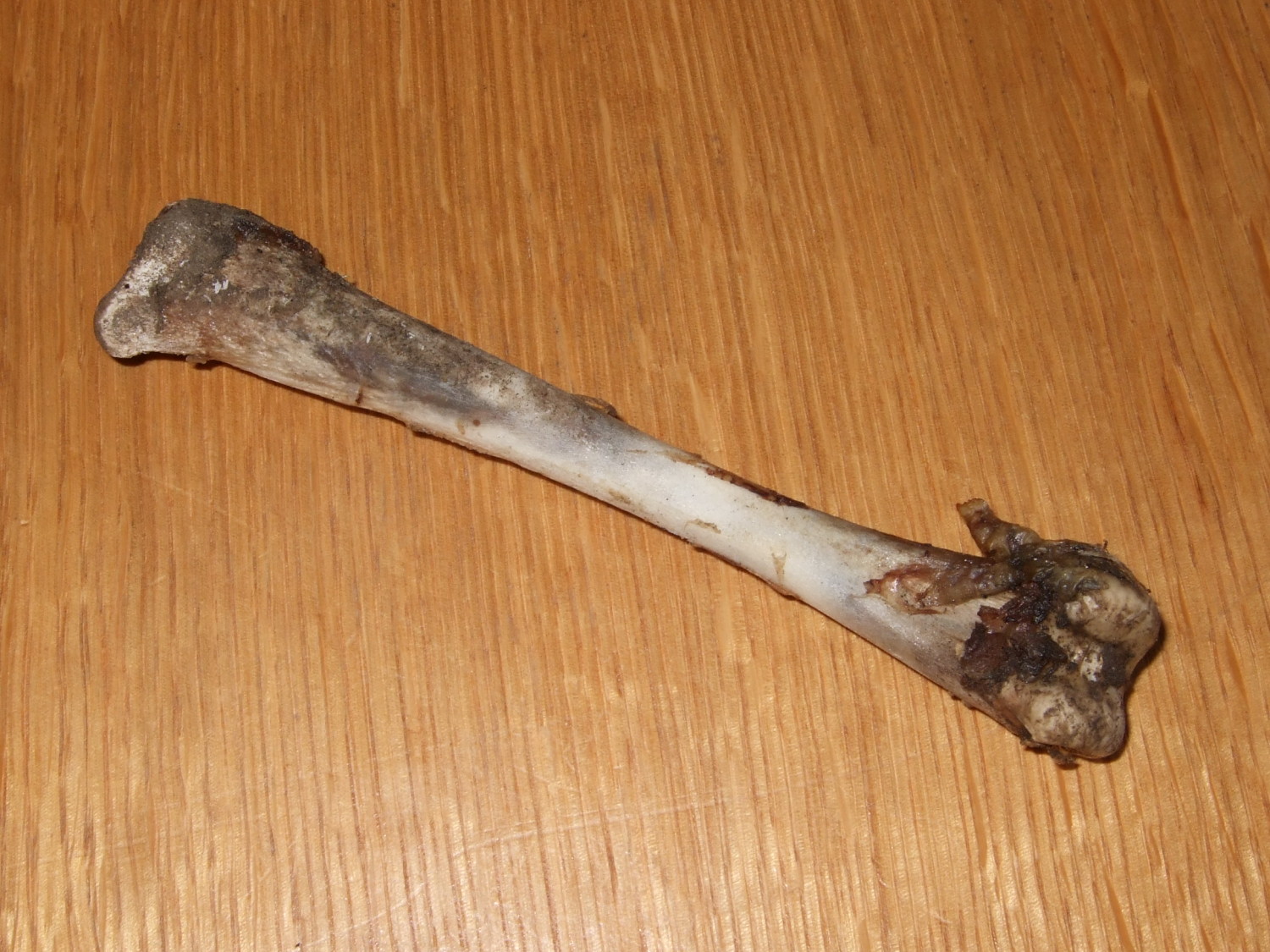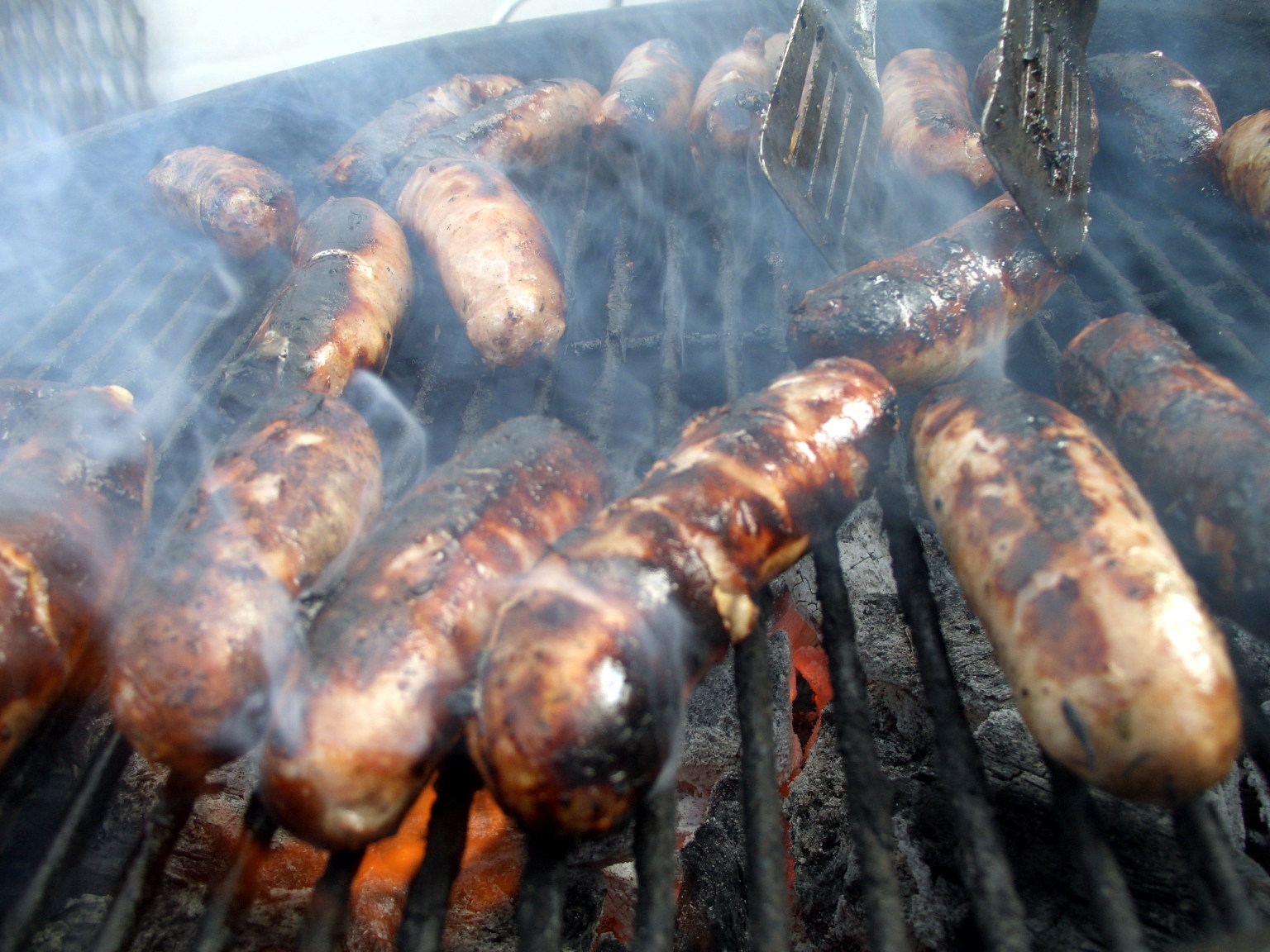Ingredients
 | Chicken Bones |  | Vinegar |
|---|---|---|---|
 | A fire, or barbeque |
Instructions
Take one of the chicken bones and clean off as much of the old bits of meat as you can.
Put it in a jar of vinegar for 1-2 weeks.
Then take it out and feel it. Has it changed at all?
Now, take another bone and leave it in a fire, or barbeque, for half an hour or so, then carefuly lift it out and let it cool down.
Feel the bone. is it any different? Try hitting it against something solid.
Compare both bones to a normal, unpickled, and unburnt bone.
Result
You should find that the bone in the vinegar becomes soft and pliable, whereas the one that was burnt becomes light, and although it remains hard, is very weak and brittle.
Sorry there is no video, the bones were damaged in the recording of the radio show. Hopefully I should be able to redo the experiment soon.
Explanation
Bone is a composite structure made up of two main components: A mineral called hydroxy-apatite and a protein called collagen. Hydroxy-apatite is a hard brittle material, and collagen is a stringy rubbery polymer - it is the stuff which the end of your nose is made of.
Sharks and babies have their bones made entirely of collagen, which is flexible, and tough (it can absorb a lot of energy in an impact) but they're not rigid enough to support large forces. This is where the Hydroxy apatite comes in, as this makes the bones stiff.
When you leave the bone in vinegar, the hydroxy-apatite dissolves away, leaving the collagen. Now the bone that is far too flexible to be useful. Similarly, when you heat bones in the fire, you turn most of the collagen protein into charcoal. This leaves the hard, but brittle hydroxy apatite, with very little holding it together, so the bones are very weak and brittle.









Comments
Add a comment